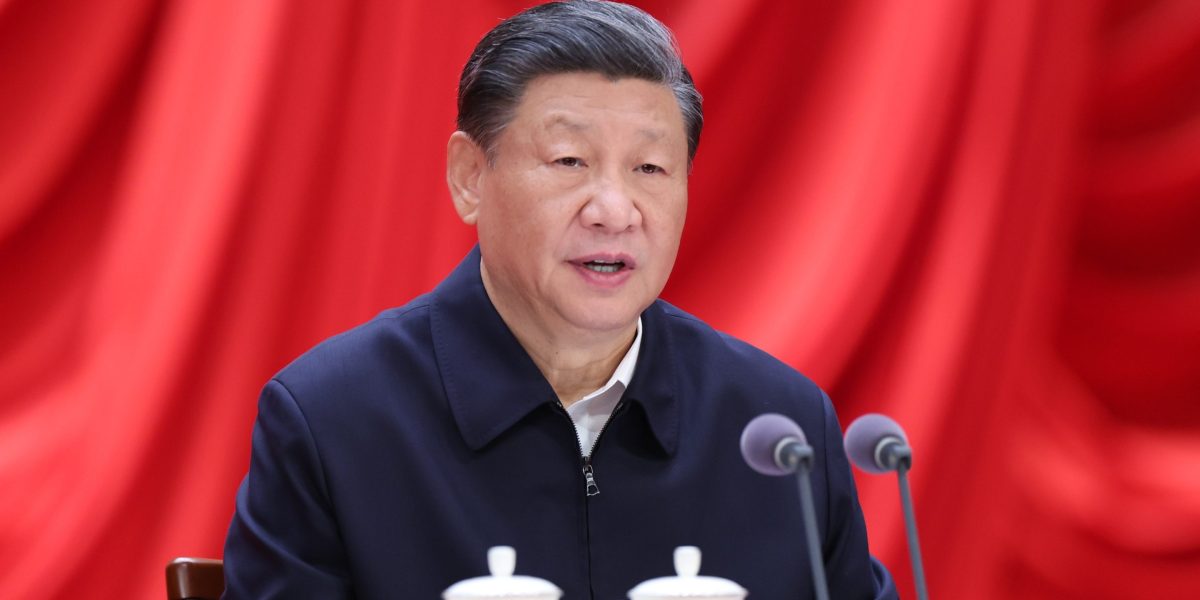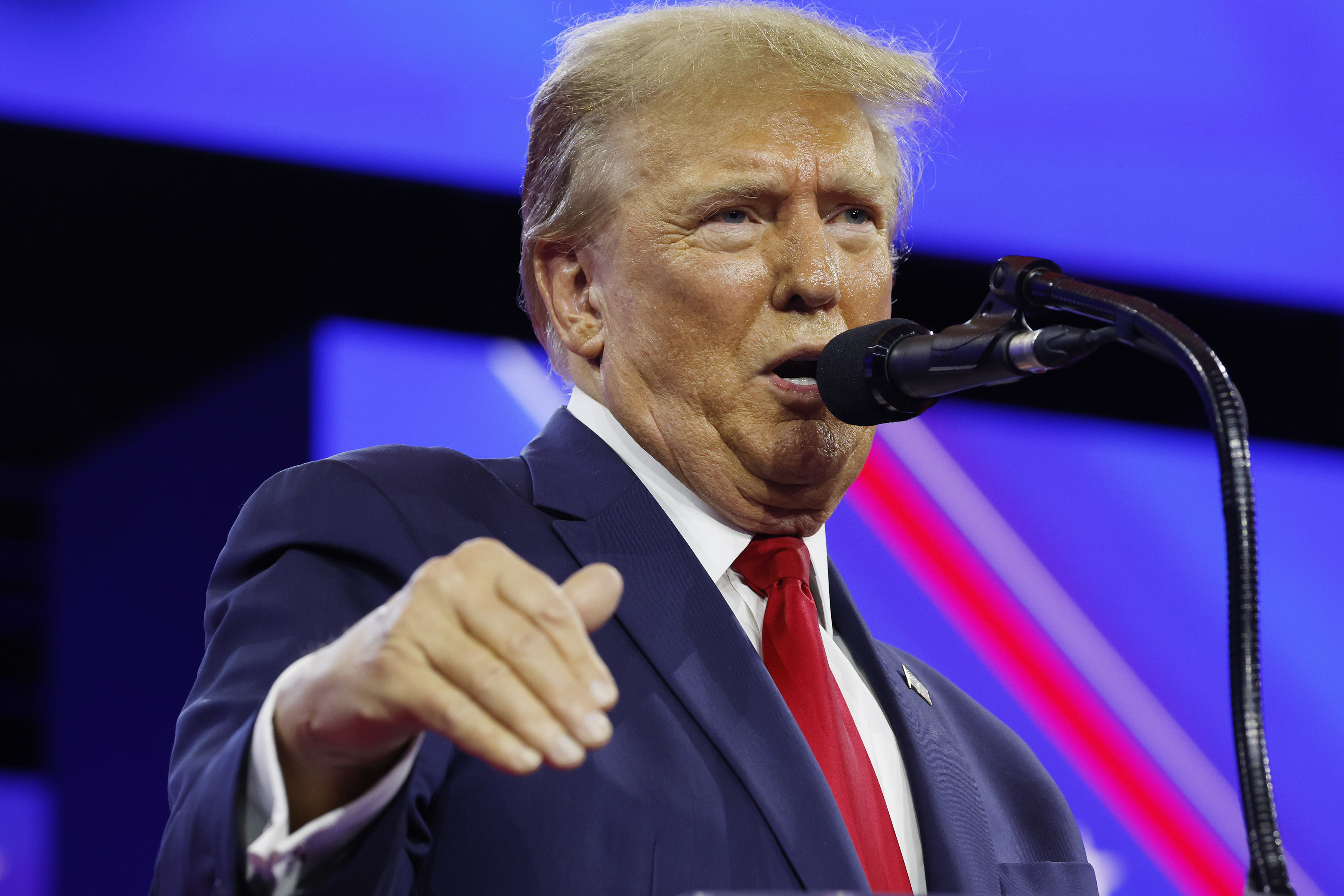China President Xi Jinping to be briefed on plans to stop $7 trillion stock rout


Anticipation is mounting for more forceful Chinese government efforts to end the nation’s stock rout, with regulators planning to brief President Xi Jinping on the market as soon as Tuesday.
Chinese stocks extended their rebound after Bloomberg reported regulators led by the China Securities Regulatory Commission plan to update the top leadership on market conditions and the latest policy initiatives as soon as Tuesday, according to people with knowledge of the matter. The CSI 300 benchmark closed 3.5% higher in its best day since late 2022. Small-cap equities that have so far borne the brunt of the rout also jumped, with the CSI 1000 gauge up 7%, the most since 2008.
While it’s unclear whether any new support measures will come out of the meeting, traders are hoping that this time will be different. Some $7 trillion of value has been wiped off Hong Kong and China equities since their peaks in 2021 and piecemeal approaches to support the economy and stabilize markets have so far failed to lift sentiment. For policymakers, it’s important to stabilize the stock market to avoid further hurting consumer confidence as China enters the weeklong Lunar New Year holiday. Play Video
“The news that the nation’s number one is holding a meeting is an encouraging development as it shows that the plunge is getting close to punching through the authorities’ comfort level,” said Li Weiqing, fund manager at JH Investment Management Co. “It gives me the impression that they are doing everything they can, apart from calling out to the market—now is the time to buy.”
The news about the Xi meeting followed a flurry of supportive announcements earlier in the day, including a vow by Central Huijin Investment Ltd., the unit that holds Chinese government stakes in big financial institutions, to buy more exchange-traded funds. Every effort will be made to maintain stable market operations, the securities watchdog said in a follow-up comment.
Foreign inflows surged as overseas funds added more than 12 billion yuan ($1.7 billion) of mainland shares on Tuesday, the most this year.
One danger for buyers is that the outcome of the meeting fails to impress, triggering a renewed selloff. The battered market has seen multiple false dawns over the past year, with stimulus-fueled rebounds barely lasting more than a few days as poor economic data and new policy risks soon sapped sentiment.
The equity crash in 2015 suggests any rescue attempt may not turn around the market immediately. Authorities curbed speculative trading, targeted market manipulation and guided some investors to avoid stock sales back then. Yet stocks took months to eventually bottom out, and peaked at a much lower level than the 2015 high.
“Our view has been that state support can indeed lead to a tactical rebound but we are not sure if that can be enough for a sustained rally,” said Rajat Agarwal, Asia equity strategist at Societe Generale SA. “Even if we see 2015, the buying started in the summer but the rebound didn’t last and the market only bottomed out in early 2016.”
As the slump extends, Xi has shown signs of becoming increasingly involved in the nation’s financial and economy policies, including making an unprecedented visit to the central bank late last year.
Authorities have been working around the clock over the past few months to come up with market rescue measures, the people said. The securities regulator has worked weekends and the National Financial Regulatory Administration has called at least a dozen meetings over the past two months on stabilizing capital markets.
The CSRC and NFRA didn’t immediately respond to Bloomberg requests for comment.
Officials this week tightened trading restrictions, banning some quantitative hedge funds from placing sell orders and others from cutting stock positions in their leveraged market-neutral funds, in an effort to stem losses. The securities regulator also said Monday it will guide brokerages to adjust their margin call levels and maintain “flexible” liquidation lines to limit forced selling.
Earlier efforts have included curbs on short selling as well as state buying of shares in the nation’s largest banks. The measures have shown little success in restoring investor confidence, which has been hurt in recent years by an economic slowdown as well as Xi’s growing control over private enterprise and sweeping crackdowns.
Even with this week’s rebound, equity benchmarks are still among this year’s worst performers among more than 90 global gauges tracked by Bloomberg. The CSI 300 tumbled to a five-year low on Friday and was still down more than 40% from a peak in 2021.
“The fact that a special meeting may have been called could indicate that things have become so bad that it needs to be reported to the top,” said Xu Dawei, fund manager at Jintong Private Fund Management in Beijing. “If there were to be a report from the state media on this, I would say with confidence that this is the pivot point, as concerted actions are also now seen.”







